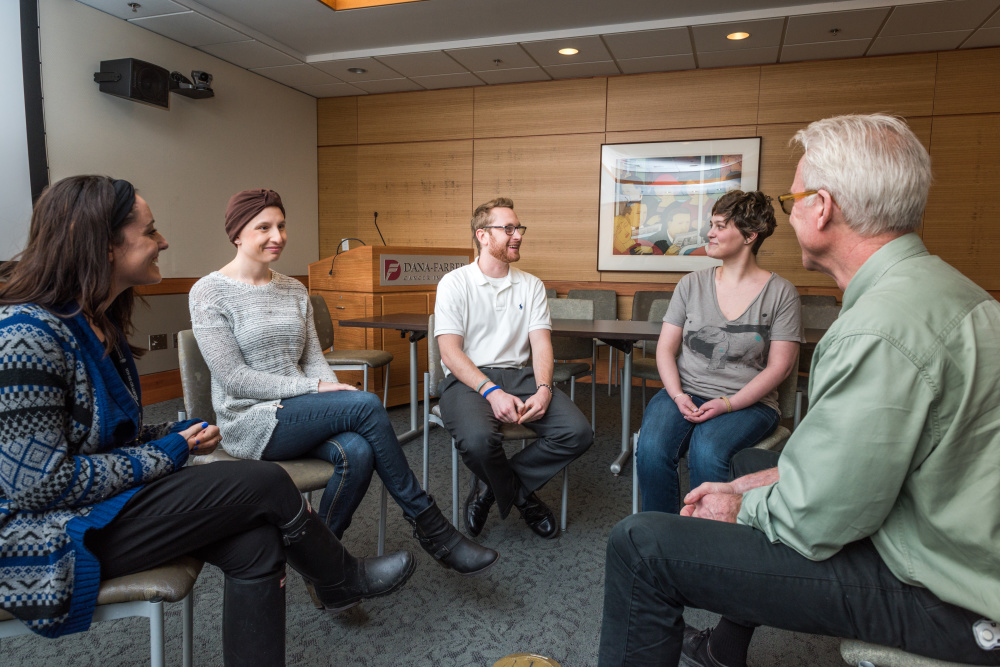
Perhaps more than other age group, young adults may feel pressure to look a certain way or conform to a traditional standard of beauty. Add a cancer diagnosis, physical side effects, and damaging treatments, and a young adult’s body image and self-perception can take an even bigger hit.
Many young adult patients, whose previous health ailments were often minimal, feel their bodies have betrayed them by developing cancer. Treatments like chemotherapy can add additional insecurities in the form of hair loss, and many medications, combined with fatigue that may limit physical exercise, can lead to weight gain. For others, lack of appetite or aversion to certain foods, often caused by chemotherapy, can cause patients to lose weight. Surgeries can also leave scars or cause changes to mobility and appearance.
“Some changes, like hair loss, patients may expect, but the emotional aspects of other changes and scars often take longer to accept,” says Karen Fasciano, PsyD, a psychologist at Dana-Farber/Brigham and Women’s Cancer Center and director of Dana-Farber’s Young Adult Program, who led a workshop on body image at the 13th annual Young Adult Cancer Conference.
Learn more:
Many patients in Fasciano’s session mentioned that they avoid looking in the mirror and often worry about what current and future partners might think of their scars. Others have found power in realizing their worth is so much more than their appearance. Openly talking about these body image concerns with your loved ones and health care providers can help you accept the changes in your body and realize the many things your body is still capable of.
“While other people sometimes provoke bad feelings about our bodies, we’re often our own worst critics,” says Fasciano. When one young adult at the workshop shared how she often thinks about what her husband would say if she told him the things she thought about her body, Fasciano noted: “Loved ones may not see your scars or new body the same way you do, or weigh the importance of these changes as much.”
The loss of control that comes with cancer can also be daunting for young adults; before cancer, young adults often consider things like weight gain or short haircuts as lifestyle choices. Patients who were active before their diagnoses can also struggle with their bodies’ new limitations and the weakness treatment can cause. Several patients in Fasciano’s workshop noted frustration with their weak bodies and inability to do the activities they used to. Gentle movement exercises such as yoga or tai chi can help patients ease back into active lifestyles, while also providing the emotional benefits of stress relief and relaxation. Programs such as First Descents, which takes young adults with cancer on active outdoor trips, can also help patients ease into active lifestyles while connecting them with others who may be facing similar body image challenges.
While you cannot control the way cancer changes your body, you do have control over the way you respond to these changes. Talk to your care team or a loved one about your body image concerns early and often, and focus on the aspects of your body that you do appreciate. Be patient with yourself and with your new body, and remember that you are more than what you see in the mirror.
